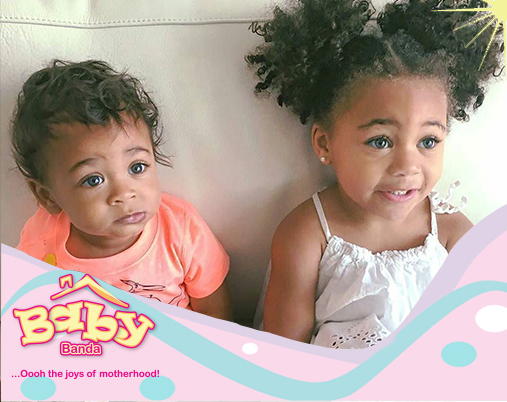Preparing ages 2-4 years
At this age, your child is still very attached to you and they may not like the idea of sharing you with other people. They may also not like relegating their ‘baby’ role. Here are a few tips on how to deal with this age group.
- You can wait a bit before telling your toddler that you are going to have a baby until your tummy starts to show so that it’s not too abstract for them to understand. Try to tell your child before she hears about the new baby from someone else.
- Prepare them about the realities of the newborn baby. The new baby will need a lot of attention; they will cry a lot, they will not be an instant playmate but that they have to wait for the new baby to grow up.
- Re-assure your toddler that he/she is your number one and that you will love him/her just as much after the baby is born as you do now.
- Involve your toddler in planning for the baby. This will make him/her less jealous. Plan for where the baby will sleep, take them along in the shopping and let them choose a few things (no matter how outrageous the colour).
- Show your child pictures of themselves as a newborn. If you are going to use some of their old baby things, ask them for permission and thank them for sharing with the baby.
- Try and complete major changes such as toilet training or switching from your room to another bedroom before the baby arrives. If that is not possible, put them off until after the baby is settled in at home. Otherwise, your toddler may feel overwhelmed by all the changes.
- Prepare your child for when you are in the hospital. Toddlers may be confused when you leave for the hospital. They may be afraid that you are sick, so explain that you have gone to get the baby and that you will be back.
- When you get home, have someone else carry the baby and not you. Enter the house purposefully looking for them and give them a big hug. You may also carry a small gift for them.
- After coming home, set aside some one-on-one time with your toddler. Give them your undivided attention. Take a walk with them; make them feel a part of the new event by having them cuddle next to you when you feed the baby.
- Address the newborn as ‘our baby’ not ‘my baby’ or you can say ‘Ethan’s Sister’ so that he feels a sense of ownership.
- Encourage visitors to give attention to your older child. Visitors can make such a fuss over a new baby that your older child might feel left out. Ask family and friends to spend a little time with your older child when they come to see the new baby. They might also give them a small gift when they bring gifts for the baby.
- Have your older child spend time with dad. A new baby presents a great opportunity for fathers to spend time alone with older children.
Preparing Ages 5 and older
At this age, children are usually a bit more mature and may not feel as threatened by the arrival of a new baby. However, your older child may resent the attention the baby gets. Here are a few tips on how to deal with this age group.
- Announce the news of your pregnancy in an age-appropriate language e.g. you can tell an 8-year old that you are pregnant but for a 5-year-old you may say that you have a baby growing in your tummy.
- Don’t ask older children if they want a brother or sister as they have no choice in the matter.
- This is a curious age so get ready to answer the inevitable questions that will come as the pregnancy progresses. “How did the baby get into your tummy?” “How will the baby get out?” “How does the baby fit in there?” And after the baby comes, “Mummy did the doctor forget another baby in there…your tummy is still big.” This questions when well answered patiently will help them process the changes.
- Explain the changes that will occur after the baby comes. At this age, they may have social activities that may be interrupted because of the new baby. They may have to share a room eventually, etc.
- Make the child feel like a part of the process. Have your older child help get the house ready for the new sibling by fixing up the baby’s bedroom, picking out a new crib, buying diapers.
- If you are able to, have the older child come to the hospital soon after the delivery so that they can meet the new baby.
- On coming home, make your older child feel that they have a role to play in caring for the baby. They can hold the baby when you are there, and help you during bath time.
- When they do something gentle and loving towards the baby, commend them.
- Spend some time with them; do something that you have always done together and do continue with activities that are important to them.
- Ensure that your older child feels listened to. Let them know they can talk about their feelings.
- Don’t ignore unacceptable behaviour. It won’t go away. Instead, identify and deal with it immediately.













